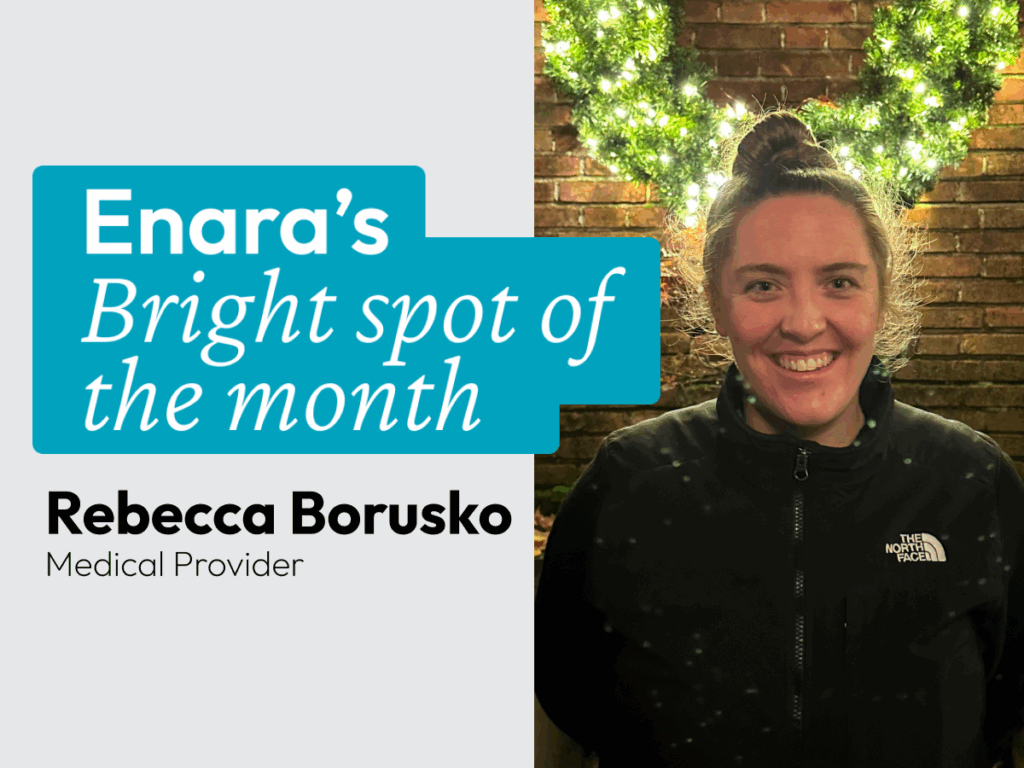This article was written by Dr. Hassan Kafri of the Kafri Clinic and was originally published on La Revista Binacional
Anti-obesity medications are an important tool for those who require a medically-guided approach to weight loss. But, according to renowned cardiologist Dr. Kafri should always be used in combination with the adoption of healthy habits. Kafri Heart and Vascular has partnered with Enara Health to make adopting those healthy habits easier than ever.
Over the last decade, the use of anti-obesity medications has seen a significant increase. According to PubMed, their use has more than doubled from 2010 to 2019. Even with this steady rise, a new generation of these types of medications has sparked new hype and media attention.
As a cardiologist, I want my patients to avoid major cardiovascular disease before they develop and cause lasting damage. Helping patients achieve and maintain a healthy weight and body composition is absolutely vital to my mission. Many of my patients have not been able to find success through traditional methods and are greatly helped by these medications.
I believe the benefits of these medications are obvious and their rise in popularity is well-deserved. These medications have been shown to reduce heart attacks, strokes, and other cardiovascular complications by anywhere between 15% and 27% for patients with diabetes. A larger trial, called SELECT, may show that even patients with obesity but without diabetes may also receive the same benefits.
Semaglutide, also known by brand names, Wegovy and/or Ozempic, helped patients lose an average of
14.9% of weight, compared to 2.4% in the placebo group, in a study released by the New England Journal of Medicine. Other studies of similar medications and protocols have shown similarly impressive results while being far less invasive than other surgical interventions.

For many years, a pill to treat obesity has been portrayed in popular culture as a pharmaceutical holy grail. Unfortunately, the human body is not so simple. Treating obesity is not the same thing as treating a headache or a sinus infection, and I believe that a hands-on, medically-led approach will be needed for patients to see immediate results as well as lifelong benefits.
In my practice, I have witnessed too many patients who have taken a failed quick-fix approach; they get a prescription from their doctor (or worse, an online prescriber) and only stay on the medications for two or three months. This unfortunate approach leaves the patient more resistant to future medications and they typically regain weight.
As powerful and useful as anti-obesity medications are, they do not function properly as a long-term weight-loss solution if they are not combined with the development of healthy habits.
This truth has led me to a very exciting partnership with Enara Health. They believe, as I do, that the best way for patients to treat obesity is by taking a personal and personalized approach.
In my partnership with Enara, I am helping their team develop and refine a robust program so patients can develop healthy habits as a central component of their heart health journey. This way, patients can take full advantage of the benefits of any anti-obesity medications they may need in a way that helps reduce heart and stroke risk. Through our partnerships, patients have access to behavioral, nutrition, and exercise coaches and we are able to provide custom and personalized plans that take into consideration each person’s heart and metabolic risk.
Unlike the situation I detailed above where patients hurried themselves into a medication regime and quickly stopped with little to no ongoing lifestyle guidance from their prescribing physician, Enara provides total wrap-around support. Again, they act as the patient’s “weight loss wingman.” This is not just a convenient service or a nice idea. This approach is central to creating immediate successes (following through on the personalized plan, overcoming emotional roadblocks, seeing the number on the scale move in the right direction) and a long-term and lasting transformation (weaning off anti-obesity medications, healthy habit formation, avoidance of cardiovascular diseases, maintenance of ideal weight and composition) leading to a better, healthier, and longer life.
So far, Enara and I are just fifteen months into our partnership, but we are already seeing very positive results. In that short amount of time, those patients who have used anti-obesity medications under our guidance (again, with a strong emphasis on adopting healthy habits alongside the use of anti-obesity medications) have seen an average weight loss of over 15%. To put that into perspective, if a patient began working with us at a weight of 300 pounds, they would have lost 45 pounds in less than a year-and-a-half.
Plus, since the Enara Health program features lifestyle coaching, adaptive support, and continual guidance from health and wellness professionals, those who adopt healthy habits are able to completely transition off their anti-obesity medications within one to two years.
At some point, at some level, nearly everyone struggles to achieve and/or maintain a healthy weight. As a practicing cardiologist, I understand the negative impacts of obesity that goes untreated and unchanged for too long. It is my responsibility to take advantage of every tool available to me, including anti-obesity medications. Now, I have seen and the research makes clear that the best approach to utilizing these medications is to combine their use with meaningful lifestyle change through the adoption of healthy habits–including proper nutrition and adequate exercise.
Through my partnership with Enara Health and the program we have created, I believe more people will have access to what is needed to experience a lifelong transformation.
I am proud of what we have made and am excited to see the good it will do.
Kafri Heart and Vascular Clinic is a state-of-the-art comprehensive cardiac and vascular center dedicated to diagnosing, treating, and preventing cardiovascular disease in the greater San Diego community since July 2009. We are committed to providing accessible, compassionate, and personalized care that goes beyond the exam room to help patients lead happy and healthy lives. To learn more, please visit www.kafri.com .



